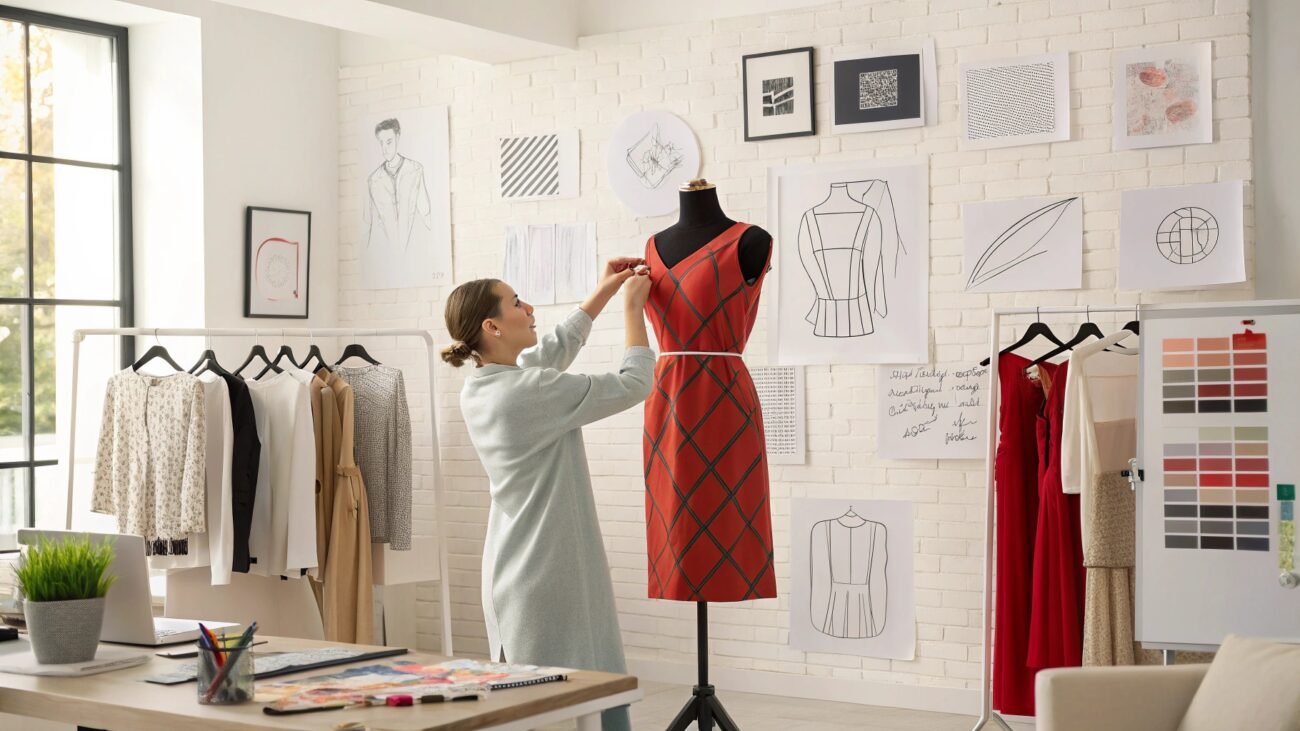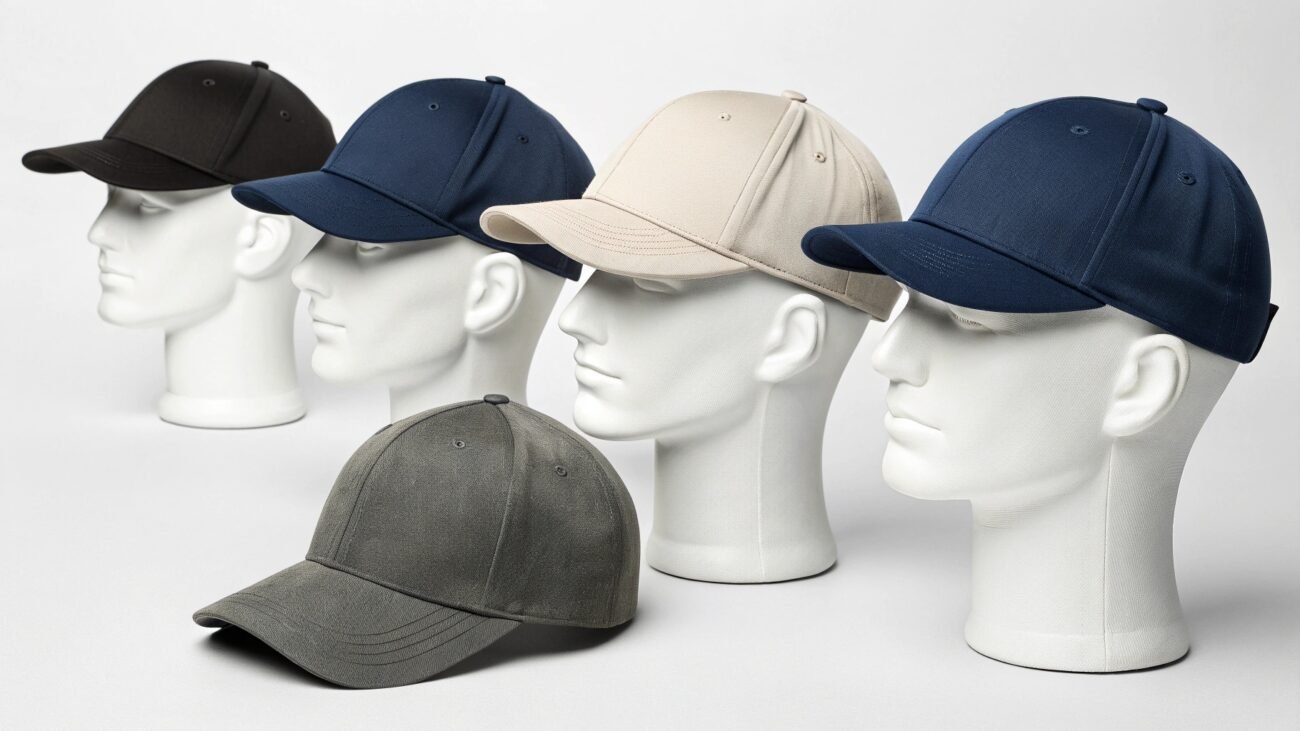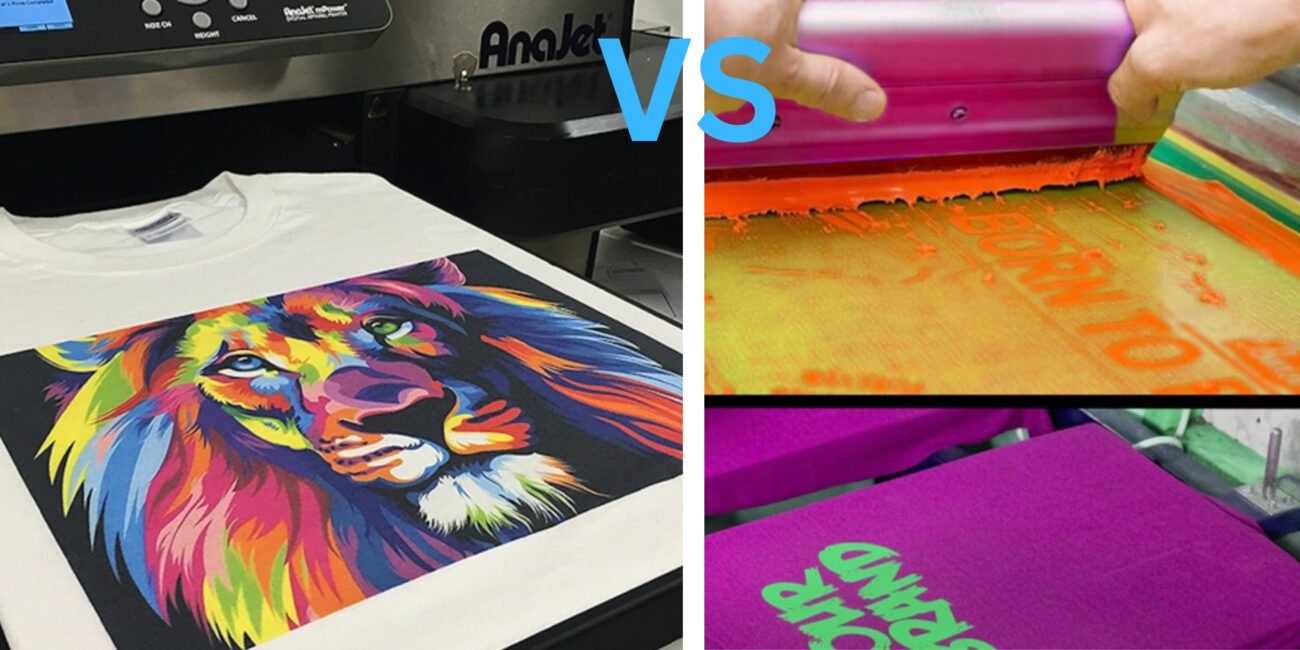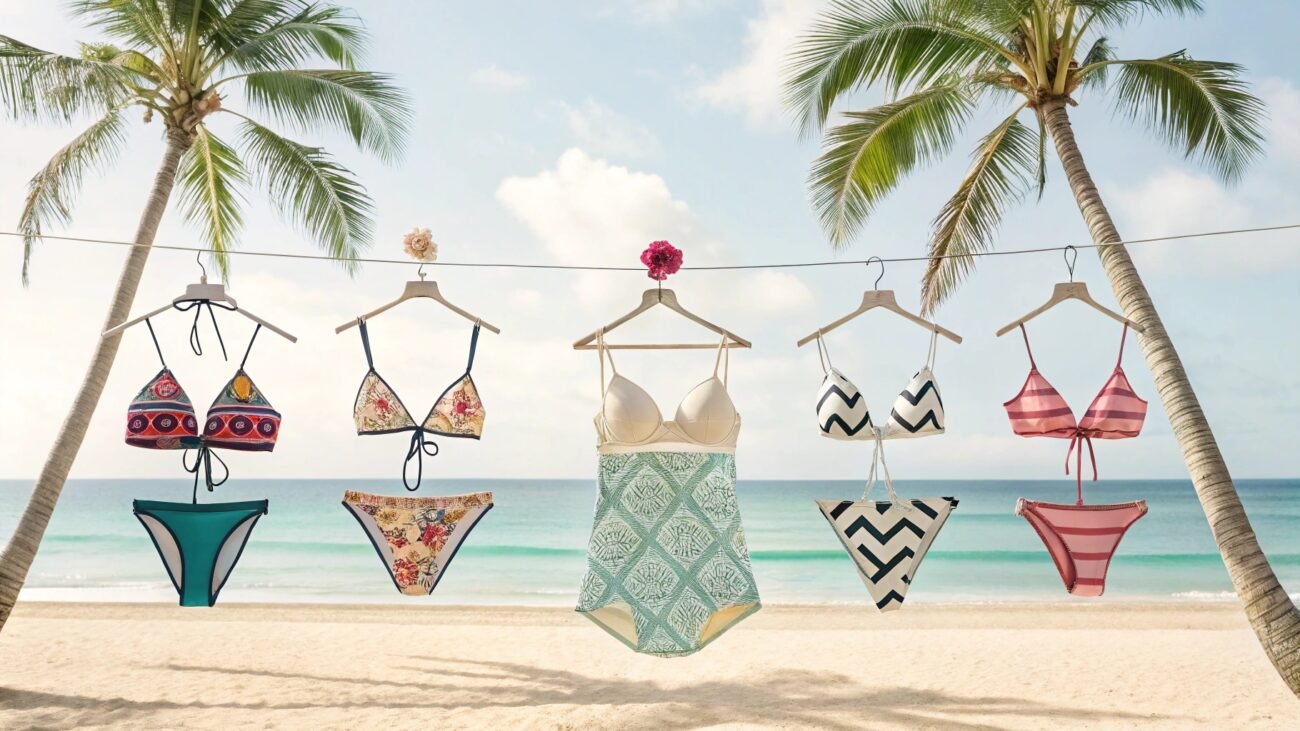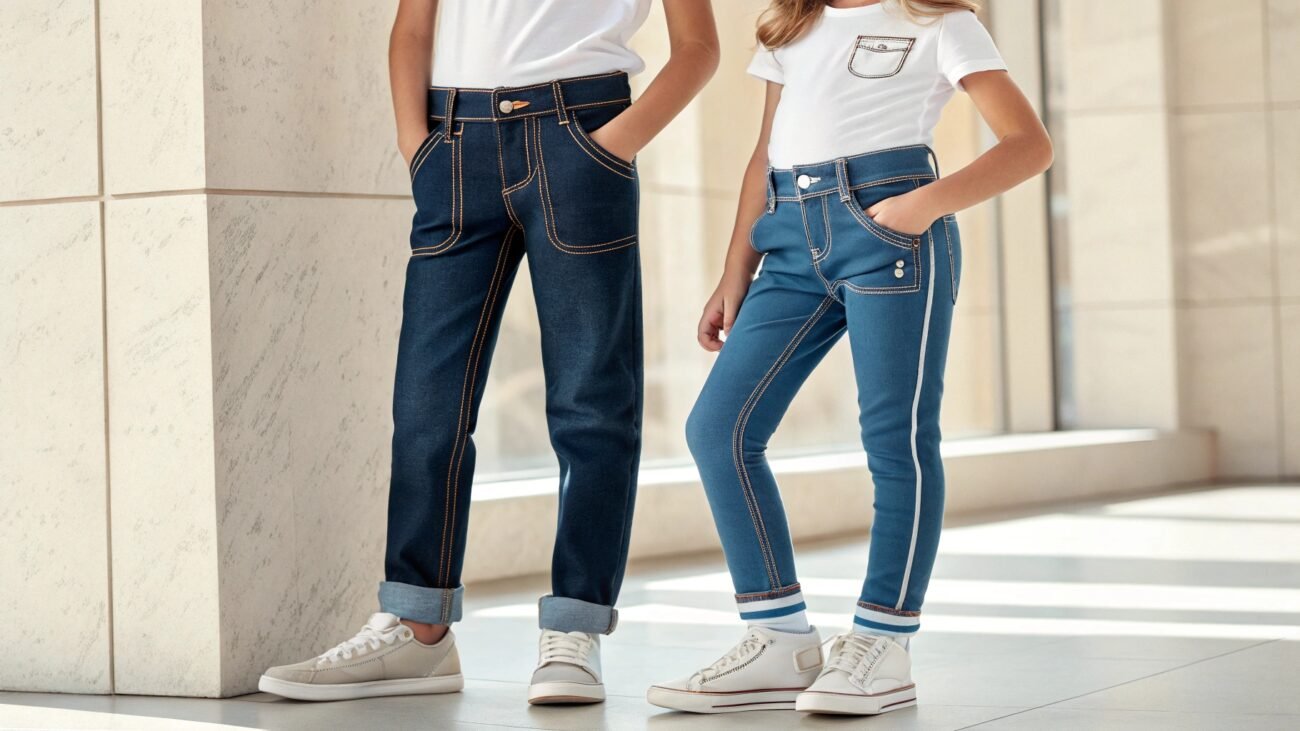In the ever-evolving world of the fashion industry, standing out from the rest of your competitors is now compulsory, but this necessity comes with challenges and setbacks which any brand aspirant has to work around in order to be successful.
Table of Contents
ToggleBut how can you stand out? Introducing Private Label Clothing, your go-to strategy for long overhauls of business and financial longevity.
In this blog, we will discuss not just the private labelling business model but also how private label clothing can help you build a unique fashion brand.
Introduction: What is Private Label Clothing?
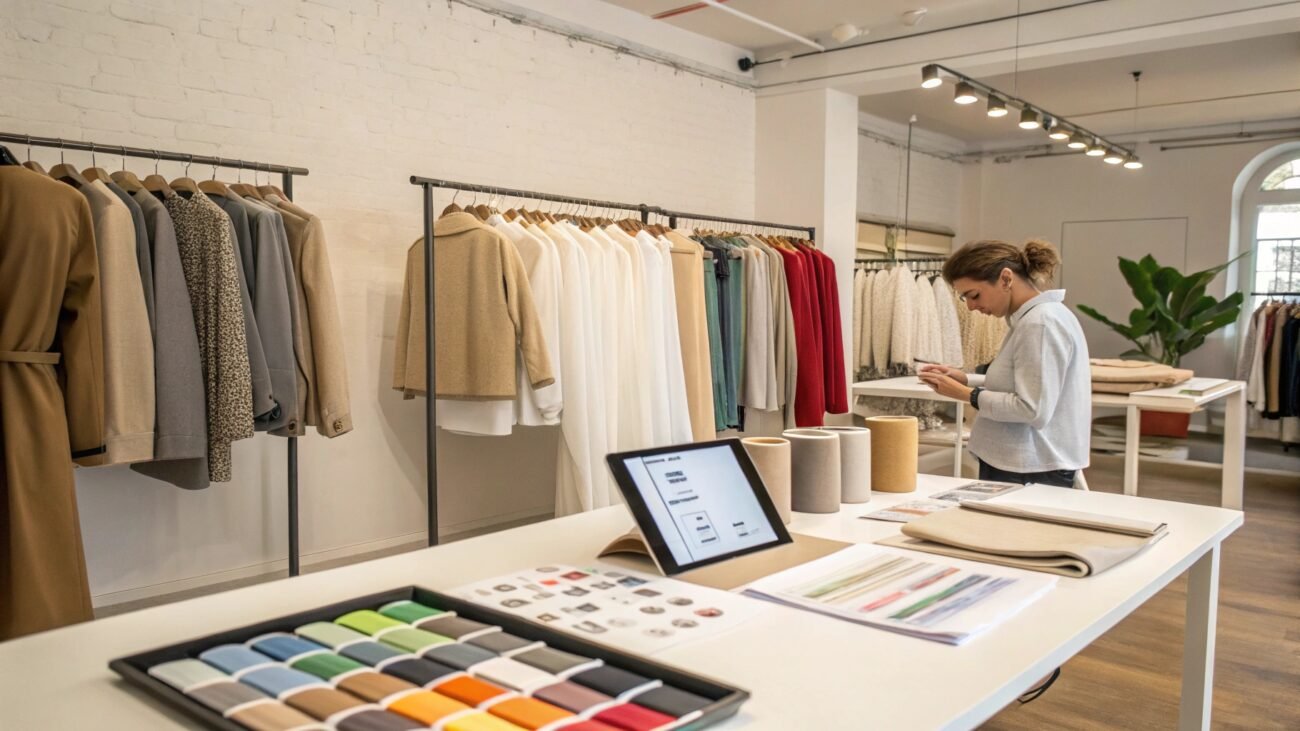
Private Label Clothing or PLC refers to a personalized set of garments made specifically for another brand, they are not mass produced generic products.
- Think of it like this, you ask someone to make you a set of high-quality custom raglan-sleeve shirts with your logo etched on them, and later, they ship it to you, and then you sell them under your brand’s name. This is what Private labelling is all about.
- This business model has gained significant popularity in recent years, especially among new beginners or small businesses who are looking for just about any opportunity to grow their business.
- Private labels allows you to be focused more on your branding work as associated manufacturers are exclusively in private label sectors.
Currently, there is a massive demand for custom T-shirts, Shorts, Activewear and even Underwear in the market, and the majority of fashion-related entrepreneurs are looking for suitable manufacturers to Grow a distinct fashion brand with private label clothing.
Customizations and Manufacturing Processes
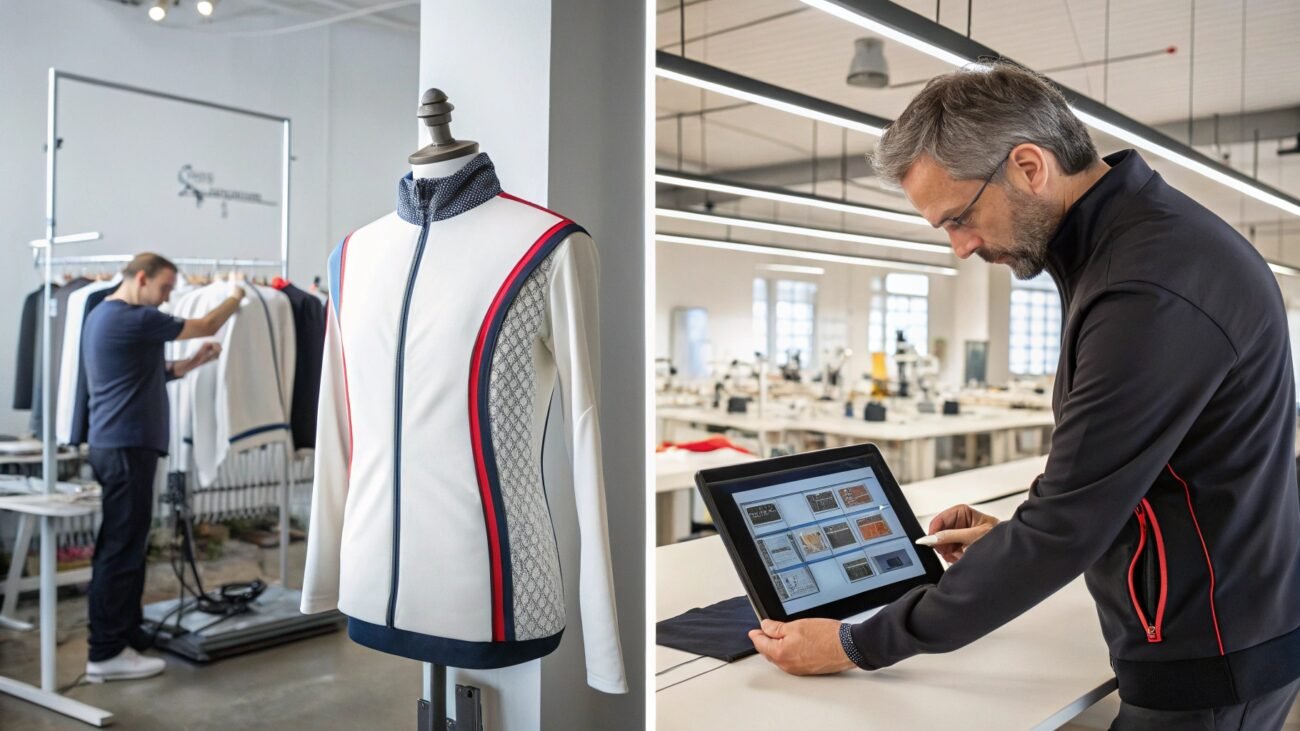
One of the biggest and perhaps most likeable advantages of private label clothing is the high level of customization and product-wise inclusivity from your side.
Unlike white label manufacturers who provide everyday mass-produced clothes, PLC aims towards higher design thought and development process encompassing your brand’s entirety.
Concerned about how to build a unique clothing brand using private labelling? Read through the below-mentioned pointers:
1) Design Ideation and Garments selection:
Private Label Clothing Manufacturers provide a wide range of garments , ranging from T-shirts to hoodies and from leggings to even formal dressings. They are also equipped with enough clothing material expertise to craft just about any garment needs of your brand.
Opting for PLC can allow you personalize these base garments as much as possibly needed to match your brand’s aesthetic and customer experience.
Customizations often includes:
- Fabric Selection: When working with Private label clothing manufacturers, you can expect a wide variety of materials such as Cotton, Polyester, and Spandex blends for activewear clothing.
- Printing and Embroidery Options: Privatized Garments are customizable through various printing methods such as Screen printing, DTF and Sublimation printing options, along with different embroidery and applique etching for logo showcasing or even branding work.
- Personalized Fitting: Your clothes can be fitted according to your “Tech Packs” or customer prerequisites.
- Functional Design Elements: Layout structuralization such as mesh panels, functional pockets and even various zippers for hoodies and jackets.
2) Branding and Labelling:
Although most sellers and business owners like to do branding work on their Private label, vendors are also fully capable of doing that instead if you are preoccupied with other business heckles. You can opt for different types of neck labels and hang tags and even ask for packaging solutions that align with your brand’s core values.
Business Tip: We always recommend you to do labelling and tagging yourself, as even a slight amount of extra attention can garner the potential of long and loyal clientele.
3) Sampling and Full-production:
This step comes after you have finalized every initial factor there is to clothes production. Sampling is utterly necessary as it confers not just to the capabilities of manufacturers but also tells you about the “feel” of your custom clothes. Most reputed makers would offer a sample round before the whole production cycle.
Sampling also enables you to catch even a slight drift of production, which you can then use to make adjustments in your clothing production. After sample approval from your side, you can discuss the MOQs with your manufacturers to get the most out of your finished products.
If you want to learn more about MOQS and how you can negotiate them then we suggest you give this blog a look.
Valuable Read: A Complete Overview: Understanding MOQs in Private Label Manufacturing
4) Quality Standards and Shipping:
The last process involving private label manufacturing is consistent quality assurances, although if your samples were impeccably made then most likely the entirety of your whole purchase order will be just as good but it doesn’t hurt to be extra careful to avoid manufacturing defects and compromises in future.
Another important thing to be attentive to is logistic solutions; you have F.O.B or C.I.F shipping options. Depending on your brand and even the availability of time, each might prove to be better than the other.
What is F.O.B and C.I.F?
F.O.B or Free On Board means the seller is responsible for goods only until they are handed over to the logistics company; after that, it becomes your duty to pay for shipping, insurances and manage timely deliverance.
Meanwhile, C.I.F or Cost Insurance Freight means the seller covers the costs of goods, their associated shipping and insurance prices all the way till it reaches the final port. Afterwards, buyers handle customs and final delivery.
| F.O.B | C.I.F |
|---|---|
| More Control | Less Control |
| Cost Transparency | Hidden Costs |
| More Responsibility | Convenient |
| Higher Risk | Lower Risk |
Private Labelling: More Benefits and Less Cons

Growing a distinct fashion brand with private label clothing is not just a woeful trend that will become obsolete one day, rather it is a strategic approach that offers entrepreneurs a set of serious ways to stand out in this highly fashion crowded space.
From creative control to easy scalability the benefits of PLC outweighs its potential hurdles, especially if you manage your business with extreme attention to details.
-> Advantages:
Total Production Controls:
Opting for PLC gives you complete control over production, as you are not limited to just pre-designing. From fabrics and cuts to custom prints and packaging, you can fine-tune every single element for a perfect brand’s vision endorsement.
Being involved so thoroughly leads to:
- A consistent brand image
- Higher perceived value
- Increased customer loyalty
Private Label Clothing Manufacturing allows you to make more than just custom clothes, it dictates to a whole experience.
Market Differentiation:
There are thousands of sellers, both online and offline, who are selling identical items, but in contrast to all of that white labelling work, PLC enables you to stand out from the rest of your competition. How? By offering you unique and personalized design formulations.
You can tailor clothing to meet every niche demands , ranging from yoga Wear,and sustainable dresses to fun and comfortable summer wear for vacation and travelling.
Greater Potential for Higher Profits:
Since you are the ultimate authority in production and branding, you can either position your clothing at a premium rate or go for affordable yet high quality marketing tactics to generate a huge lump sum of revenue. Your customers are paying for the uniqueness and specialities of your clothes and brand rather than just a piece of fabric.
Must Know: PLC has no involvement of middlemen meaning higher chances for negotiability, better communication which all leads to improved cost-efficiency.
Ease of Scalability:
Once you have laid foundation for your business and it has actually become financially sustainable, then you can scale your collection or expand into different associated markets with relative ease as private label clothing manufacturers offer catalog of accessories and items such as Bags, Caps and even high quality belts to go by with your garments line.
-> Disadvantages:
Initial Capital Requirement:
Private labelling generally requires more upfront expenses, and crucial elements such as sampling and MOQs add up to it, but this can easily be managed by doing the following:
- Starting with a small clothing collection
- Negotiating for lower MOQs
- Partnering up with low-risk and start-up friendly vendors such PLCM.
You can read through our latest blog about Capital requirements for starting a private label brand to better understand where your investment is going.
Click Here: From Concept to Product: Cost of Private Label Clothing Manufacturing
Time Consuming Process:
The process from ideation to delivery can take weeks and even months, sometimes due to unknown overheads, however you can work your way around these problems by setting realistic timelines and usage of project management documentation to track progress.
Business Tip: Employing proper management can ensure timely production and seasonal business opportunities in Creating a standout fashion label with private label clothing.
Quality and Inventory management:
If your chosen vendors decide to cut corners, then it could seriously affect your brand’s reputation, and it is advisable to always conduct samples throughout your partnership tenure and by negotiating on a figure that is wholeheartedly acceptable by manufacturers well, leaving no room for compromises.
- Similarly, you also need to look for overstocking, as having more trendy clothes in your warehouse can mean no future business opportunity till you clean your stash beforehand.
The associated setbacks are manageable but if benefits are utilized correctly then you can conveniently build a unique fashion brand through private label clothing.
Ready to Develop Private Label Clothing Brand?
Partner with us to bring your custom private label designs to life! As a trusted private label Clothing Manufacturer, we offer top-quality fabrics, expert craftsmanship, and personalized solutions to match your brand’s style.
Conclusion
Private Labelling is more than just another method of cutting costs; its business model empowers new fashion brand aspirants to build meaningful and recognizable clothing solutions with the potential for high net profits.
Individuality and storytelling are considered more valuable than the actual product itself, but everything sets in place when your products also align with your vision and using private label clothing to develop your fashion brand can mean long and future sustainability.
Investing in PLC can allow you to build a long and sustainable business.
- Look what Redditors have to say about Private Label Clothing
Is private labeling allowed on all clothing brands?
byu/Jackfruit_Goose insmallbusiness
FAQs
1- Do I need to be a fashion designer to start a private label brand?
A big no to that, Most manufacturers offer design consultations, and you can also hire freelancers to help create tech packs and mockups of your envisioned clothes.
2- How do I find reliable private-label manufacturers?
There are multiple ways of doing so, such as searching online directories or visiting expos, but if you want quick solution vendors, then you can give us a chance; PLCM offers a low amount of MOQs and exceptionally fast lead times, ensuring your business remains profitable all year long.
3- What is white-labelled clothing?
White labelled clothes means non-branded, generic garments that the manufacturer sells to many retailers and merchandisers, it is a great option for those that lack initial investment but making a sustainable business out of this approach is 10x more difficult than doing the same with private labelling.

